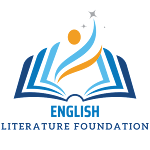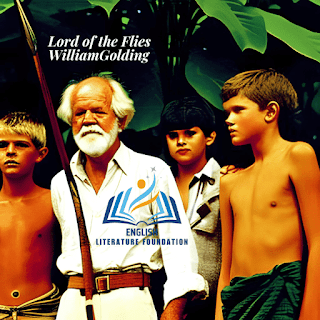Lord of the Flies: A Detailed Summary of William Golding's Masterpiece
Introduction
"Lord of the Flies" is a captivating novel written by William Golding, exploring the dark and primal nature of human beings when they are stripped of the constraints of society. Set against the backdrop of an uninhabited tropical island, the story follows a group of British schoolboys who find themselves stranded after their plane crashes. Through their struggles for survival, the novel delves into themes such as civilization versus savagery, the loss of innocence, and the corrupting influence of power.
Background and Setting
The novel is set during an unspecified war, where a group of boys, aged six to twelve, are being evacuated from England due to the threat of bombings. However, their plane crashes on a remote island, leaving them without any adult supervision. This isolated and uninhabited island becomes their new home, and the boys must learn to fend for themselves.
Key Characters and their Significance
- Ralph: Ralph is chosen as the leader by the boys. He represents order, democracy, and civilization. His character embodies the desire for rescue and the establishment of rules to maintain order within the group.
- Jack: Jack is initially the leader of the choirboys and later becomes the antagonist of the story. He represents savagery, anarchy, and the lust for power. Jack's descent into savagery highlights the inherent darkness within human nature.
- Piggy: Piggy is the intellectual and voice of reason among the boys. He symbolizes logic, science, and civilization. Despite his intelligence, he faces ridicule and is often marginalized by the others.
"Piggy, for all his ludicrous body, had brains." - William Golding, Lord of the Flies
- Simon: Simon is a quiet and contemplative character who displays kindness and spiritual insight. He represents goodness, purity, and morality. Simon's connection with nature and his mystical encounters provide a contrast to the other boys' descent into chaos.
The Theme of Civilization vs. Savagery
One of the central themes in "Lord of the Flies" is the conflict between civilization and savagery. The boys' struggle to maintain order and establish a civilized society is contrasted with their natural inclination towards savagery and violence. As the novel progresses, the boys' primal instincts take over, leading to the disintegration of the social order they had initially established.
The Descent into Savagery
As the days pass and rescue remains elusive, tensions rise among the boys. A contrasting figure emerges in the form of Jack, a charismatic and power-hungry individual who leads a group of hunters. This division between Ralph's group, focused on building shelters and keeping the signal fire alive, and Jack's group, focused on hunting and indulging in primal instincts, becomes a central conflict in the novel.
The island itself becomes a microcosm of society, reflecting the innate human tendencies when removed from the constraints of civilization. The boys' descent into savagery is epitomized by their gradual transformation into hunters and the worship of a mythical figure known as the "Beast." Fear and darkness grip their hearts, and the thin veil of morality starts to disintegrate.
Symbolism in "Lord of the Flies"
Golding employs various symbols throughout the novel to convey deeper meanings and ideas.
- The conch shell: The conch shell represents authority, order, and democratic power. It becomes a symbol of civilization and the boys' social structure. The gradual decline in the conch's significance mirrors the erosion of their society.
"We'll have rules! Lots of rules! Then when anyone breaks 'em-" - William Golding, Lord of the Flies
- The beast: The concept of the beast represents the boys' inner fears and the inherent evil that resides within them. It evolves from a mere figment of their imagination to a tangible threat that drives them to commit acts of violence.
"Fancy thinking the Beast was something you could hunt and kill!" - William Golding, Lord of the Flies
- The Lord of the Flies: The severed pig head, also known as the Lord of the Flies, is a powerful symbol of the boys' descent into savagery and the embodiment of their darkest impulses.
"You knew, didn't you? I'm part of you? Close, close, close! I'm the reason why it's no go? Why things are what they are?"
Power struggles and the breakdown of order
As the boys struggle for survival, power struggles emerge, leading to the breakdown of order within their makeshift society. Ralph, as the chosen leader, tries to maintain order and establish rules. However, Jack challenges Ralph's authority and forms his own tribe, driven by a desire for dominance and the hunt. The power struggle between Ralph and Jack represents the constant tug-of-war between civilization and savagery.
"Bollocks to the rules! We're strong - we hunt! If there's a beast, we'll hunt it down! We'll close in and beat and beat and beat!" - William Golding, Lord of the Flies
Violence and the loss of innocence
The isolation and lack of adult supervision on the island lead to a gradual descent into violence and the loss of innocence among the boys. The boundaries between right and wrong blur as they succumb to their primitive instincts. The brutal killing of a sow and the subsequent murder of Simon highlight the darkness that lurks within them when societal restraints are removed.
"The world, that understandable and lawful world, was slipping away." - William Golding, Lord of the Flies
The role of fear and its consequences
Fear plays a significant role in "Lord of the Flies," driving the boys to irrational behavior and contributing to the deterioration of their society. The fear of the unknown, symbolized by the beast, leads them to make irrational decisions, succumb to superstition, and eventually resort to violence.
"The thing is - fear can't hurt you any more than a dream." - William Golding, Lord of the Flies
The importance of rules and their erosion
Initially, the boys establish rules to maintain order and ensure their survival. However, as fear and savagery take hold, the importance of these rules is eroded. The gradual abandonment of rules leads to chaos, violence, and the loss of their civilized nature.
"Which is better - to have rules and agree, or to hunt and kill?" - William Golding, Lord of the Flies
The rescue and its implications
Throughout the novel, the boys hold onto the hope of rescue. However, when a passing naval officer finally arrives, the boys' behavior and appearance shock him. The rescue brings them face-to-face with the realization of the darkness that resides within them and the true nature of humanity.
"I should have thought that a pack of British boys - you're all British, aren't you? - would have been able to put up a better show than that." - William Golding, Lord of the Flies
Critical reception and analysis of the novel
"Lord of the Flies" has been widely acclaimed for its exploration of human nature and the fragile nature of civilization. The novel has sparked numerous critical discussions and interpretations, with its themes and symbolism continuing to resonate with readers of all ages.
"The theme is an attempt to trace the defects of society back to the defects of human nature." - William Golding, Lord of the Flies
Conclusion
"Lord of the Flies" by William Golding is a haunting and profound exploration of the inherent darkness and complexities of human nature. Set on a deserted island, the novel follows a group of boys who descend from order and civility into chaos and savagery. Through the characters of Ralph, Jack, Piggy, and Simon, Golding masterfully portrays the struggle between civilization and the primal instincts that lie within every individual.
The symbolism in "Lord of the Flies," such as the conch shell, the beast, and the Lord of the Flies, adds layers of depth to the narrative, inviting readers to ponder the deeper meaning behind each element. Golding's use of quotes from the book itself serves to emphasize the profound themes and provide a glimpse into the characters' thoughts and motivations.
The novel highlights the fragility of societal norms and the erosion of order in the face of fear, power struggles, and the loss of innocence. It serves as a stark reminder of the potential for darkness within humanity, urging us to examine our own capacity for good and evil.
"Lord of the Flies" has garnered critical acclaim for its insightful portrayal of human nature and has become a timeless classic in the literary world. Its themes and messages continue to resonate with readers across generations, prompting deep introspection and discussions about the nature of society and the human psyche.
In conclusion, "Lord of the Flies" is a compelling and thought-provoking masterpiece that forces us to confront the complexities of human nature and the delicate balance between civilization and savagery. William Golding's novel serves as a cautionary tale, reminding us of the importance of morality, compassion, and the preservation of societal order.
FAQs
- What is the main message of "Lord of the Flies"?
The main message of "Lord of the Flies" is that the dark and savage instincts lie within every individual, and without the constraints of civilization, humanity can descend into chaos and violence.
- What does the conch shell symbolize in the novel?
The conch shell symbolizes order, democracy, and authority. It represents the boys' efforts to establish a civilized society and maintain a sense of order and structure.
- Who are the main characters in "Lord of the Flies"?
The main characters in the novel include Ralph, Jack, Piggy, and Simon. Each character represents different aspects of human nature and contributes to the exploration of the novel's themes.
- Why is "Lord of the Flies" considered a classic?
"Lord of the Flies" is considered a classic due to its timeless themes, powerful storytelling, and thought-provoking exploration of human nature. The novel continues to resonate with readers and offers profound insights into the complexities of human behavior.
- What are some other novels similar to "Lord of the Flies"?
Some other novels similar to "Lord of the Flies" in terms of exploring human nature and society include "1984" by George Orwell, "Animal Farm" by George Orwell, and "The Hunger Games" by Suzanne Collins.

